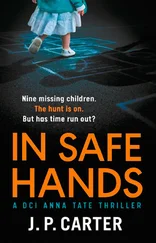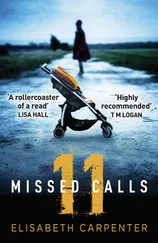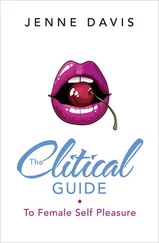Now, I’ll show you a couple techniques for filtering and refurbishing mental material. While your past should always be regarded as toxic, these techniques, practiced continuously and with escalating intensity, should allow you to interact safely with the objects found in our little haven. Let’s start with a basic, fairly neutral memory. I’d like everyone to call to mind a memory from their past, let’s say from the past five years, let’s say it’s an ordinary day rather than a special occasion, and let’s say it takes place in a kitchen. DO NOT REMEMBER this memory, simply inspect it and take stock of its contents. When does it take place? Who is present? What types of objects and colors are near to you, far from you? When you have one of these in view — say, the location, that kitchen — I want you to work on turning that location into this location. This might be subtractive, if you know a lot about this location you used to occupy, or additive if you don’t. For example, you were once with your sister in a bright, cozy kitchen whose walls were covered in a decorative paper depicting marigolds in bloom. You looked into your cup of tea and saw the dead husk of a spider resting at its bottom.
First, eliminate the sister or sisterlike object from this memory. Whatever you thought of her at that time, she is nothing more than a sister-shaped impediment to your progress now. You could begin by introducing a particle of blankness near her face that expands to swallow her whole, from her needy little mouth to her chewed-down toenails. Or you could “black her out,” overlaying her location with a square or scribble of black that disencourages the gaze. Perhaps the easiest method is to look away. Try it. This may take a couple of tries.
All around me I heard little sounds of effort, trapped groans and squeezed breathing as we tried to expunge loved ones from our own private scenes. These filtering sessions were painful; I found scratches on my body afterward, I had sore muscles in my forearms and calves, I must have pulled them trying so hard to hold still. I was working on a memory from earlier last year, from before I knew there was any life other than mine to escape to, before I knew about the Darkness and the Light, before things had gotten so bad. It was a memory in which I stood in my kitchen while somebody who I tried to imagine was not B suggested we eat something that was not Popsicles. I had eliminated her face and hair, now a fuzzy space tilted atop the thin neck and words came from it, though I no longer knew what they meant.
Once you’ve worked at the eradication of persons, try a background substitution. Borrow from our pure and Light-filled surround. Instead of your childhood wallpaper, think of our glossy white walls. The more your memory of that place comes to resemble this hall of Brightness, the Brighter you’ll be in memory, and in your current, evanescing iteration.
I turned the gray walls crawling with small, historied stains into a stark white expanse like the one in this room. I took out our cheap plates with the yellow rim and put nothing in their place. Even with these markers scrubbed clean, I couldn’t help knowing who it was, when it was, what was happening. What was B doing? Was she looking and acting like me? Had she seen C, and how far away was he from where she was now?
Recall the parable of the knife: There were two brothers, identical in temperament but divided in spirit, each bearing much enmity toward the other. With their father’s death, they made to split his property equally in half. They were fortunate, for their father possessed two of each thing, every object set next to its twin in his ample abode. They commenced to halve his estate, and the portions were made exact — but for a single carving knife that had no partner. The two argued bitterly over this knife, whether to share it in increments of time or split blade from hilt and go their separate ways. Finally, proffering the knife’s edge to the throat of his sibling, the eldest suggested that he would take possession of the knife in its physical manifestation, while the younger might count himself the owner of the knife’s intangibles: its sharpness, form, and afterlife. They quickly parted ways, the eldest mounting his horse and pointing himself toward the village, while the younger lay supine, bleeding his life out at the side of the road. But the bargain was in the younger man’s favor after all: while the eldest prodded dully at supper with his lump of inherited matter, the younger lived far better in heaven with his knife at his side, singing knife-songs to the heavenly gathering and putting holes in the angels, one by one.
KEEP GATHERING, LEARNING, CLEANSING
YOUR GHOST RUNNETH OVER
With that, our Manager exited the room and there were no more lessons for the day.
AFTER A MEAL OF SIXKandy Kakes, I headed over to the Greeting Hall for my shift processing the new recruits. Anna was already there, washing her hands beneath hot water in preparation for the formal bath where we’d wash their soiled bodies. Wherever I intended to be, it seemed like Anna had always gotten there five minutes before. She looked up at me as I walked in, then back down at her washing, violently down, as though she were washing the me from her. It was clear Anna had started to resent me, believing that she could rise further and faster on her own, which was probably true. Since we had arrived, we had risen up in the Church, but not so far up.
On the other side of the metal garage door I could hear the new recruits stirring in their holding pen, writhing in a collective fidget, asking timidly for food or water. I was full of anxiety and fear in these moments before processing began. The Darkness they would carry in beneath their fingernails and on their feet, dissolved into the slick of their mouths and eyes, their unchecked speech containing within it unedited and uncleansed referents to the Dark world I still remembered, though I tried not to. The inevitable stream of questions that they would ask and that I could not answer — they made me feel like I knew less than they, less than anything at all.
At the hour mark the door lifted and the recruits came in, blinking up at the bright fluorescent bulbs overhead that rendered their bare bodies in shades of sickly yellow and cream. We peeled the sheets from them and exposed them, blinking, to our Brightness. Inside the Greeting Hall they swarmed aimlessly, they crouched and covered their heads with their hands, they stopped in the middle of the room and stared above. Their naked faces were open and searching hungrily for direction, and I was grateful for my sheeting, which kept us apart. As a greeter it was my job to grab them one at a time and guide each through the different steps of the bath, the salt bath, the sand bath, the white bath. I grabbed a girl by the wrist and turned her around to face me. She might have been thirteen, fourteen, with flat blond hair that dribbled down across her chest. Had she decided to come here, or had she been decided for? I grabbed her other wrist and looked for her eyes. “Are you ready,” I said, “to purge the Dark from your body, to eat only Light, to cut from your flesh the double of your own self and cast it out to starve in the wild?”
In the whites of her nervous eyes, blood vessels stood out like red thread. “I guess,” she said.
Good enough. I took her by the wrists to the salt bath, instructed her to lie down and thrash around like a bird in a dry stone bowl. I heaped cup after cup of salt upon her moving body and helped her rub it into the areas where Dark tends most to accumulate: the armpits, elbow pits, the areas behind the ears and at the nape of the neck, the Dark folds where hair entraps particulate malaise.
As I bathed her in hard, scouring white, her face twisted into a shape designed to keep the salt out. It was only after I had moved her to the sand bath that I realized her mouth was not just assuming a protective stance but was working itself toward speech. She moved to wipe her mouth with a limb, but her movable parts were as silty as everything else, the sand caked to her fingertips and wrists, her small floral lips. She nudged at the air with her head, eyes fixed desperately on my own, indicating that she wanted me to brush the sand from her lips with my own hands. I looked down at my hands. My fingers poked out from beneath the edges of my sheet. They looked older than I had remembered, with deep lines near the joints and a cracked pattern spreading all over the backs. I had lost track of time. I didn’t know how long I had been in here, how much older I had gotten. My age, like my birth and upbringing, was a forbidden topic. Inquire instead, said the Managers, into the agelessness of your ghost.
Читать дальше


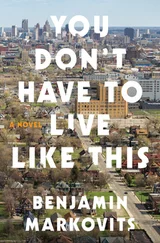
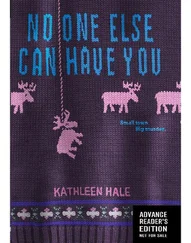
![Ally Carter - [Gallagher Girls 01] I'd Tell You I Love You But Then I'd Have to Kill You](/books/262179/ally-carter-gallagher-girls-01-i-d-tell-you-i-lo-thumb.webp)


